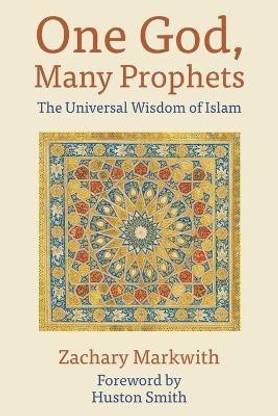The Bahá’í teachings fundamentally emphasize the unity of God and the oneness of humanity, encapsulated in the perspective that throughout history, God has manifested His will through various Prophets, each delivering messages tailored to the context and exigencies of their time. This profound belief beckons exploration into the nature of these Prophets and the principles guiding the acceptance of their teachings within the Bahá’í framework. The premise of “One God, Many Prophets” serves not only as a theological assertion but also as a guiding principle for a cohesive global society.
To begin with, the concept of the Manifestations of God—those Prophet figures such as Moses, Jesus, Muhammad, and Bahá’u’lláh—is pivotal. Bahá’ís believe that these individuals are not merely historical figures but are divine manifestations, instrumental in advancing humanity’s spiritual evolution. The equity of their messages invites adherents to recognize the continuity and progression in spirituality. Indeed, one of the most compelling aspects of this belief is the inherent recognition that while each Prophet addresses unique circumstances, they collectively encapsulate a singular divine purpose.
Critically, understanding this unity challenges conventional dichotomies often present in religious discourse. Observations reveal a fascination spanning decades as individuals grapple with the apparent differences across religions. The phenomenon of interfaith discourse exemplifies an attempt to reconcile divergent beliefs through shared ideals. Bahá’ís assert that true understanding comes not from an exclusive embrace of one path but from an appreciative acknowledgment of all divine revelations. This expands the religious narrative to include a broader spectrum of spiritual insights, fostering an environment ripe for dialogue and cooperation.
Furthermore, the acceptance of all Prophets does not necessitate the relinquishment of one’s cultural or religious identity. Rather, it encourages individuals to engage in a synthesis that honors their heritage while embracing the broader spiritual panorama offered by diverse religious teachings. In this merging, followers find resonance with universal values such as love, justice, and truth—qualities espoused by all the Prophets. This synthesis enriches the individual’s spiritual journey and facilitates a more profound reverence for the multifaceted nature of divine guidance.
However, the path to achieving such acceptance is not devoid of challenges. In an era characterized by polarization and conflict rooted in religious differences, the Bahá’í emphasis on unity can seem utopian. Nonetheless, there is a pertinent insistence on the importance of education—both spiritual and intellectual. Studying the lives and contributions of various Prophets illuminates their cohesive objectives, thus rendering a perspective of shared humanity rather than divisional creeds.
To further cultivate this acceptance, engaging with interfaith communities emerges as a pivotal strategy. Such involvement presents opportunities for enlightening conversations and experiential learning. Discovering commonalities between tenets, rituals, and philosophies serves to highlight not the divergences but rather the shared quest for truth. Moreover, participating in collaborative community activities fosters goodwill and mutual respect, reinforcing the essential Bahá’í principle that the advancement of society hinges on collective efforts, irrespective of individual backgrounds.
Additionally, a fundamental aspect of Bahá’í teachings is the emphasis on critical thinking and inquiry. Followers are encouraged to undertake a personal investigation of truth, rather than simply inheriting beliefs. This intellectual rigor fosters an environment conducive to a robust acceptance of diverse experiences and teachings. By employing critical analysis to examine the autographs of various leaders and the historical contexts against which their teachings were delivered, one cultivates a deeper appreciation for the epochs transcended by these figures.
Equally, the practical application of these teachings in daily life is paramount. Individuals are prompted to embody virtues extolled by the Prophets—compassion, service, and equity—manifesting the divine principles through their actions. Aligning one’s conduct with these high ideals provides a tangible method to bridge the gaps between disparate beliefs, manifesting the unity that Bahá’í teachings so ardently advocate.
Personal reflection also plays a critical role in fostering acceptance. Evaluating how experiences and encounters with individuals from varied faith backgrounds shape one’s understanding of spirituality can lead to enlightening insights. Each interaction becomes an opportunity to perceive the divine in multifarious forms, reiterating that, while diverse in expression, the essence of God remains unchanging and universal.
To encapsulate, embracing the principle of “One God, Many Prophets” calls for a holistic and multifaceted approach. It entails a commitment to education, dialogue, and personal evolution. Moreover, the aspiration to overcome the barriers that segregate humanity requires persistent dedication to the values preached by the Prophets of various traditions. By doing so, individuals not only acknowledge the validity of multiple paths but also participate in the grand tapestry of a shared human experience. The call to unity in diversity resonates profoundly within the Bahá’í framework, imploring all to transcend sectarian boundaries and embrace the universal call of humanity toward peace and cooperation.
